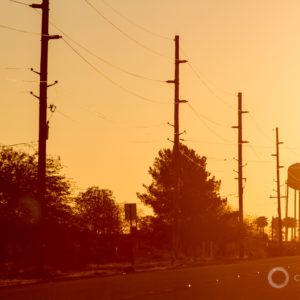The Stream, August 25: China Commits to Cutting Smog by 15 Percent
The Global Rundown
China pledges to cut air pollution in several northern cities by 15 percent each year. A Russian tanker sailed an Arctic sea route without an icebreaker for the first time. The main provider of water and sanitation services in Puerto Rico lost the ability to borrow money, putting the island’s water infrastructure in jeopardy. A large nature reserve in northern Brazil is opened up to mining. Recent decades of climate change have minimally impacted inland lakes, according to a recent study. An analysis of six proposed dams on the Amazon River system finds that the project could have negative ecological impacts.
“Puerto Rico has been slowly going down this cliff. It’s a tough predicament.” –Stacy Isaac Berahzer, water specialist at the University of North Carolina, in reference to Puerto Rico’s impending water crisis. Due to deepening debt problems, the island’s main water provider can no longer borrow money, meaning that all current and future water infrastructure projects must be put on hold. The standstill could impact the water quality of 3.4 million people. Bloomberg BNA
By The Numbers
19 Number of days it took a Russian tanker to travel from Norway to South Korea via the northern sea route. Previous trips have required an icebreaker, but the most recent trip was completed without an icebreaker at record speed due to thinning Arctic ice. The Guardian
28 Number of cities in northern China that will strive to cut air pollution by 15 percent per year during the winter months. The Ministry of Environmental Protection posted a 143-page “battle plan” on its website detailing how it will combat the smog. Reuters
In context: China’s early pivot from carbon.
Science, Studies, And Reports
A study of lakes in the Midwest and Northeast United States by the University of Wisconsin-Madison concluded that the water quality of inland lakes has stayed largely the same in recent years. Agricultural changes, a warming climate, and intensifying storms were expected to lead to poorer water quality. Science Daily
An international team of scientists determined that six planned or potential Andean dams along the Amazon River could have negative ecological impacts. The dams would trap sediments and nutrients upstream, leading to potentially catastrophic effects on communities and wildlife in the Amazon basin. Science Daily
In context: Popularity of big hydropower projects diminishes around the world.
On The Radar
The Brazilian government has opened up a national Amazonian reserve to potential mining operations. The area, covering 46,000 square kilometers, has been protected since 1984. Now, nine indigenous land areas within the original reserve will remain protected, but other forest areas will likely be mined for copper and gold. BBC
Kayla Ritter is a recent graduate of Michigan State University, where she studied International Relations and Teaching English to Speakers of Other Languages. She is currently based in Manton, Michigan. Kayla enjoys running, writing, and traveling. Contact Kayla Ritter





